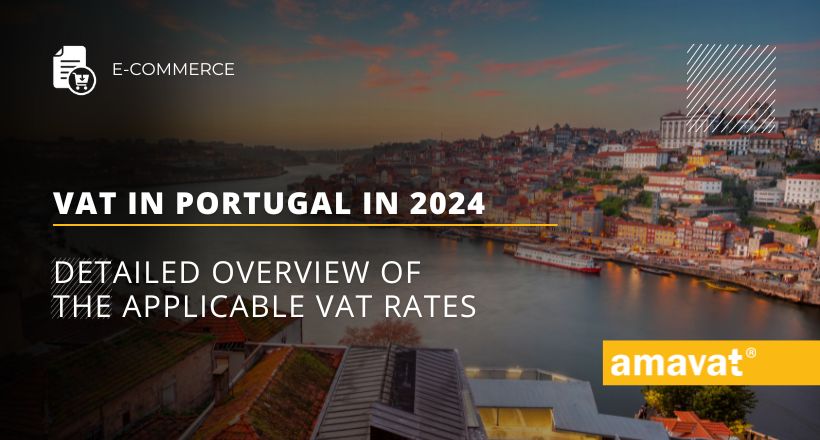Value Added Tax (VAT) is a crucial element in the fiscal landscape of many countries, and Portugal is no exception. With the rise of e-commerce, understanding how VAT is applied to online transactions has become increasingly important for both consumers and businesses. This article delves into the intricacies of VAT in Portugal, focusing on its implications for e-commerce and the key regulations that online retailers must navigate.
Understanding VAT Implications for E-Commerce in Portugal
Value Added Tax (VAT) in Portugal is a consumption tax applied to the sale of goods and services, including those sold online. For e-commerce businesses, VAT compliance is not just a legal obligation but also a crucial aspect of maintaining competitive pricing and consumer trust. In Portugal, the standard VAT rate is 23%, with reduced rates of 13% and 6% applicable to certain goods and services. For instance, essential food items and books are often subject to these reduced rates, providing some relief to both sellers and buyers in these categories.
E-commerce businesses operating within Portugal must charge VAT on their sales to Portuguese customers, regardless of whether the business itself is based in Portugal or another EU country. This requirement stems from the EU-wide VAT regulations aimed at creating a level playing field across member states. For example, a French online retailer selling to Portuguese customers must apply the Portuguese VAT rate to those transactions. This ensures that local businesses are not disadvantaged by foreign competitors who might otherwise charge lower VAT rates.
Moreover, the VAT implications extend beyond the borders of Portugal. When Portuguese e-commerce businesses sell to customers in other EU countries, they must be aware of the VAT thresholds in those countries. If their sales exceed these thresholds, they are required to register for VAT in the respective countries. This can be a complex and resource-intensive process, necessitating robust accounting systems and a thorough understanding of international VAT laws. For instance, a Portuguese company that sells over €10,000 worth of goods to German customers in a year must register for VAT in Germany and comply with German VAT regulations.
Key Regulations and Their Impact on Online Retailers
The VAT regulations for e-commerce in Portugal are influenced by both national laws and EU directives. One of the most significant regulations is the EU’s VAT e-commerce package, which came into effect on July 1, 2021. This package introduced the One-Stop Shop (OSS) system, simplifying VAT compliance for online retailers. Through OSS, businesses can report and pay VAT for all EU sales via a single portal in their home country. For a Portuguese retailer, this means they can handle VAT obligations for all EU sales through the Portuguese tax authority, rather than having to register in multiple countries.
Another key regulation is the abolition of the VAT exemption for small consignments imported into the EU, which previously allowed goods valued at €22 or less to be imported without VAT. This change means that all goods sold to EU consumers are now subject to VAT, regardless of their value. This has significant implications for online retailers, particularly those who source products from outside the EU. For example, a Portuguese e-commerce business importing small gadgets from China must now ensure that VAT is applied at the point of sale, which can affect pricing strategies and profit margins.
Additionally, the introduction of the Import One-Stop Shop (IOSS) facilitates VAT collection on low-value goods imported into the EU. Retailers can use the IOSS to collect, declare, and pay VAT on goods valued up to €150, simplifying the process for both businesses and consumers. For instance, a Portuguese online shop selling phone accessories from the United States can use the IOSS to streamline VAT payments, enhancing the customer experience by avoiding unexpected charges upon delivery.
Navigating the complexities of VAT in the e-commerce sector is essential for businesses operating in Portugal. The regulations, while designed to create fairness and simplicity, require diligent compliance and strategic planning. By understanding the VAT implications and leveraging systems like the OSS and IOSS, online retailers can ensure they meet their legal obligations while maintaining a competitive edge. As the e-commerce landscape continues to evolve, staying informed about VAT regulations will be crucial for sustained success in the Portuguese market.
